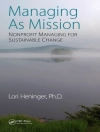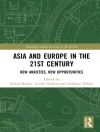Rudolf Kjellén, regularly referred to as “the father of geopolitics, ” developed in the first decade of the twentieth century an analytical model for calculating the capabilities of great-power states and promoting their interests in the international arena. It was an ambitious intellectual project that sought to bring politics into the sphere of social science. Bringing together experts on Kjellén from across the disciplines, Territory, State and Nation explores the century-long international impact, analytical model, and historical theories of a figure immensely influential in his time who is curiously little-known today.
Table of Content
List of Illustrations
Foreword: Why Rudolf Kjellén?
Mark Bassin
Introduction
Ragnar Björk and Thomas Lundén
Chapter 1. Rudolf Kjellén: Academic, Publicist, Politician
Ragnar Björk, Bert Edström and Thomas Lundén
Chapter 2. Rudolf Kjellén: The Swedish Intellectual and Political Context
Ragnar Björk
Chapter 3. Sweden´s Borders: Kjellén’s Contribution to Social Science by Defining and Applying Geopolitics
Claes G. Alvstam & Thomas Lundén
Chapter 4. Rudolf Kjellén’s Great Power Studies: The Editions
Ragnar Björk
Chapter 5. Rudolf Kjellén’s Great Power Studies: Examining Germany, USA, Russia, Japan
Ragnar Björk
Chapter 6. Geopolitics, Political Geography and the Political Science Irredenta: Kjellén´s The State as a Form of Life
Thomas Lundén
Chapter 7. Kjéllen and World War I
Gunnar Falkemark
Chapter 8. The Small Game in the Shadow of the Great Game: Kjellénian Biopolitics between Constructivism and Realism
Carl Marklund
Chapter 9. Discourse, Identity, and Territoriality: Kjellén’s Thinking about a European Federation of States
Ola Tunander
Chapter 10. Rudolf Kjellén’s Intellectual Impact in Latin America
Andrés Rivarola Puntigliano
Chapter 11. Kjellén’s Legacy: A Story of Divergent Interpretations
Thomas Lundén
Conclusion: Kjellén’s Life and Work: Tensions between Opposites
Ragnar Björk and Thomas Lundén
Index
About the author
Thomas Lundén is Emeritus Professor of Human Geography at Södertörn University. His latest book is Pommern – ett gränsfall i tid och rum [Pomerania – a border case in time and space], (Lund University Press 2016).












